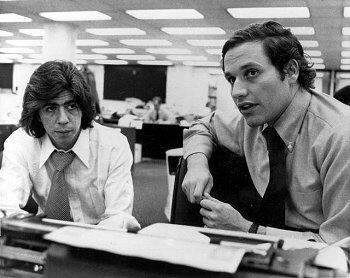This post has not been edited by the GamesBeat staff. Opinions by GamesBeat community writers do not necessarily reflect those of the staff.
 The credible ethics of gaming journalism has been brought into question after it was discovered that a few journalists tweeted a hashtag in exchange for a PS3 during the Gaming Media Awards.
The credible ethics of gaming journalism has been brought into question after it was discovered that a few journalists tweeted a hashtag in exchange for a PS3 during the Gaming Media Awards.
Now the question of how close gaming journalists are to the industry has been brought up by Ewan Aiton while Steven Sukkau brings up the difficulty regarding video game journalism. However their opinion also applies to the profession of journalism and the ethical balance that every journalist has to walk.
Almost every journalist (my self included) enter the profession with the idealist dream of becoming the next Bob Woodward and Carl Bernstein (obviously gaming journalism was not my first choice). However these dreams are crushed when upon the realization of how the profession actually works.
Regardless of ones subject of choice, a reporter is useless without a reliable network of sources and contacts, hence is best advised not to burn your source. But than there is the ethical line of how close a writer is to the source that may be questionable.
When a journalist is faced with such a challenge, it takes time to outweigh the significance over the risks.
If you think being a gaming journalist is hard, try being a police journalist in the Bay Area. Because cops can not do their job without some radical socialist or community organizer crying “police brutality”, law enforcement tends to be distrustful towards the press.
To overcome this challenge, a cop writer will have to spend years build a trust with law enforcement before having a professional partnership. However a journalist may encounter a story that may jeopardize their working relationship with the police. So one has to ask if it’s worth attacking the Blue Line?
But all of this pales to the pandering and brown nosing done by political journalists. Its very obvious that a lot of news outlets (like Fox News and MSNBC) are nothing more but cheerleaders for a political party.
In my five years as a journalist, I have encountered such a dilemma that lead to a story being killed out of fear of political retaliation. Back when I was attending De Anza College, I had received a tip that a member of the student government had posted a video of himself torturing animals.
Me and another writer attempted to look into this; but after pressure and political threats from the student government, our Editor is Chief took any opportunity to stonewall us until we were forced to abandon the story.
Yet in the end I got the last say when I published two OpEd’s that were very critical of the student government and their childish antics.
Lets go back to the subject and I do apologize if it sounds like I’m belittling gaming journalists.
For freelancers and hew hires at a gaming publication its best to be acquainted with as many sources as possible. However the more established journalists need to exist out of their comfort zone. I admit a lot of game critics work like they are Roger Ebert living in fear.
What those journalists did at the GMA is just unethical bribery, but Aiton is right in that the gaming journalism needs to stop being the PR arm of the industry. Gaming journalists need to follow the examples of film critics in being objective and not working in fear of rattling the carrot stick.
Or at least work with the same ethical standards that all journalist work with to protect their credibility.
To have a better understanding for the ethical line and challenges journalists have to overcome, watch The Newsroom on HBO.
